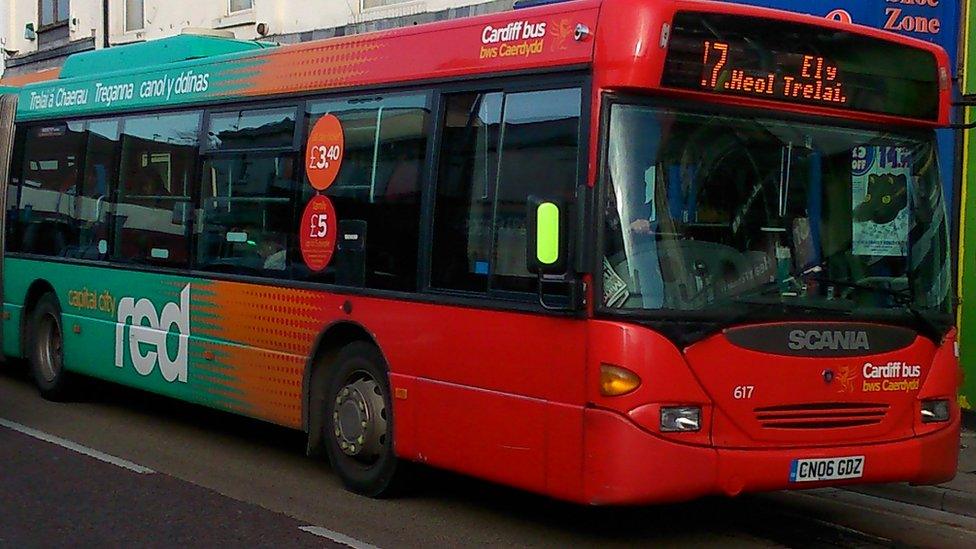Commuter 'horror stories' as bus network shrinks by 20%
- Published
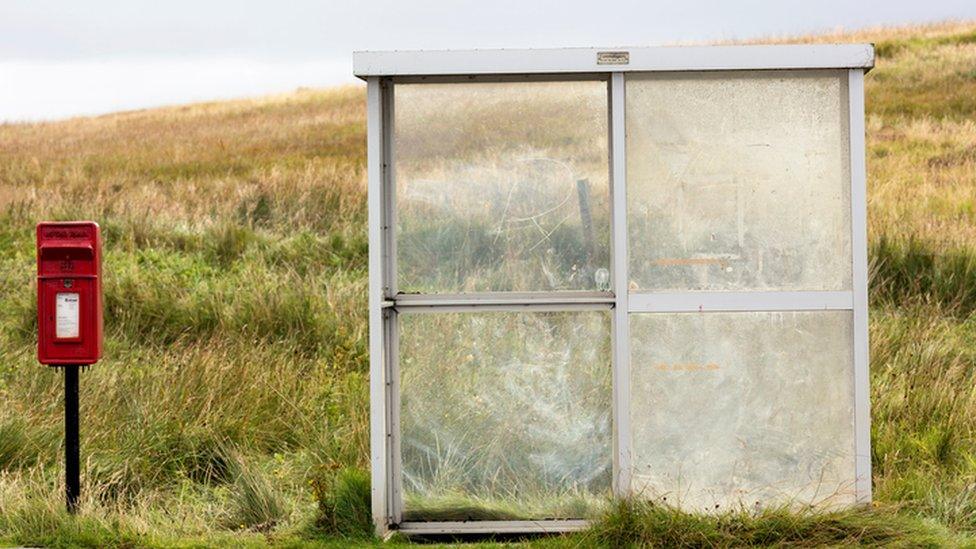
People in rural areas are feeling the consequences of sudden route closures
The distance travelled by local bus services in Wales has dropped by 20% in 10 years, BBC figures show.
Department for Transport statistics also reveal miles covered with financial support from local authorities almost halved.
Age Cymru said cuts in rural areas left older people lonely and isolated.
The Welsh Government called the figures "misleading", saying train journeys have increased and they do not include longer-distance TrawsCymru services.
Wales has seen the biggest percentage drop in bus miles (between 2006-2007 and 2016-2017) compared to the other UK nations.
Drops in mileage come amid cuts to council transport budgets and after a number of commercial bus companies folded.
The Welsh Local Government Association (WLGA) said it was "well known" that local authorities are under severe financial pressures.
"A steady decline in bus usage unfortunately undermines the case for continued financial support for non-commercial services," a spokesman added.
This view was echoed by Dr John Disney, a senior lecturer specialising in transport at Nottingham Business School.
He said: "The local authorities who would have stepped up to subsidise unprofitable routes haven't got the funding for it."
However, he believes increasing the level of subsidy by "relatively modest sums" would help, blaming politicians for failing to understand the importance of bus services.
"I think it is because they have perceived the bus as being something people use as a last resort," he said.
"And I think one of the problems has been that bus users have generally tended to be people who are probably less outspoken and less politically aware."

Outside of Newport and Cardiff services are run by private firms
The Welsh director of the Confederation of Passenger Transport John Pockett said these services provided a lifeline for many people, especially in rural areas.
He said it was important their needs were not overlooked as a result of a focus on urban metro systems.
"Innovative solutions, such as demand-responsive travel, are needed to ensure there are services to areas that would otherwise be cut off," Mr Pockett added.
Meryl Williams has witnessed first-hand the effects of a severely reduced bus service on her local community and said the routes are socially necessary.
Customers at the Hafan cafe in Bangor, a drop-in centre for the over-50s she manages, complain about long waits and overcrowding as a result of the drop in journey frequency.
It comes after a local operator, which ran routes from Bangor to Dolgellau was stripped of its licence at the start of the year.
Some villages lost all 10 daily services to nearby Porthmadog, and a route that used to run 14 times a day between Porthmadog and Caernarfon now operates three services.
John Peduzzi, 53, estimates he has lost the equivalent of three days this year waiting for buses that never turned up or missing connections due to an unreliable service.
"I travel on the buses every day and I'm hearing horror stories day in, day out," he said.
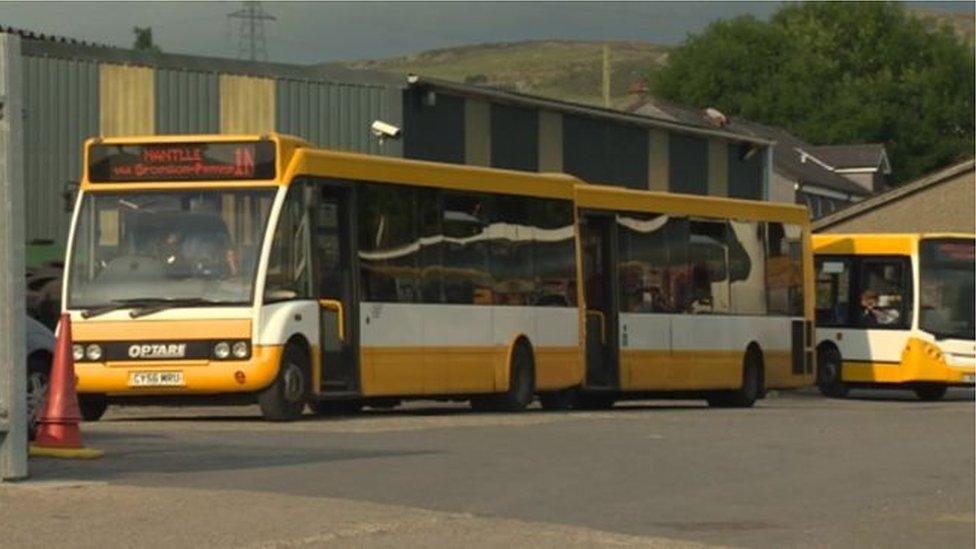
Express Motors ran services in Porthmadog until January
"Yesterday, I was travelling from Caernarfon and the bus didn't stop for four stops and left people on the side of the road."
The Welsh Government spokesman said the figures paint "a misleading and incomplete picture".
"Whilst we note there has been a reduction in bus passenger journeys over the last decade, over the same period train journeys have increased by 33%" he said.
"We want an integrated public transport network - road, rail and Active Travel, external - that will improve the availability and accessibility of local travel."
He also pointed to the £2m given annually to fund the longer-distance TrawsCymru network and plans for regional metro schemes.
Funding to councils to subsidise bus and community transport has also been maintained at £25m a year since 2013-14.
- Published20 February 2014
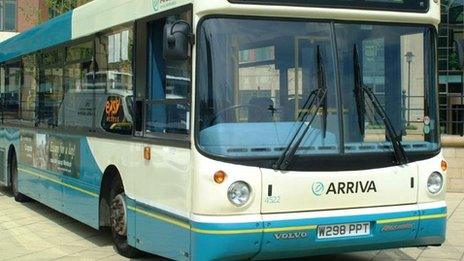
- Published3 January 2018
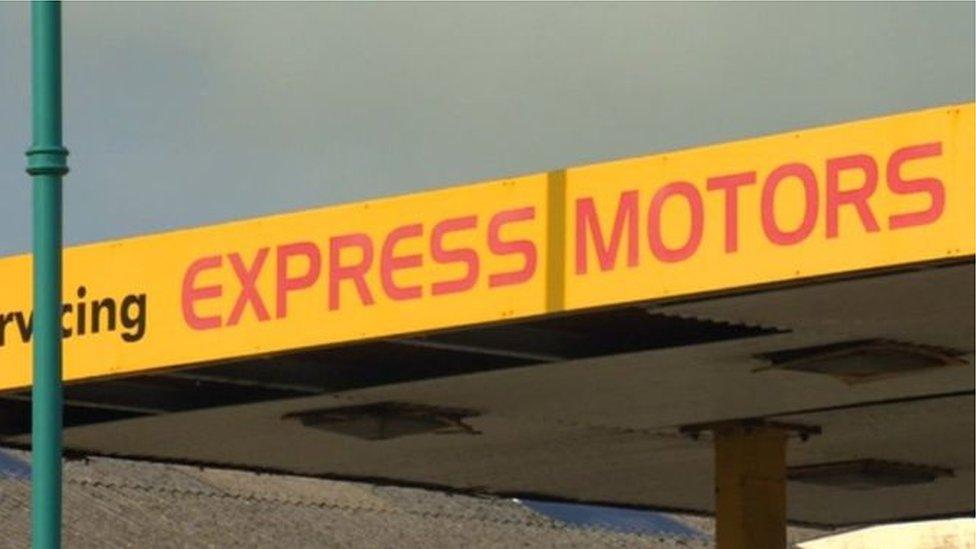
- Published18 December 2017
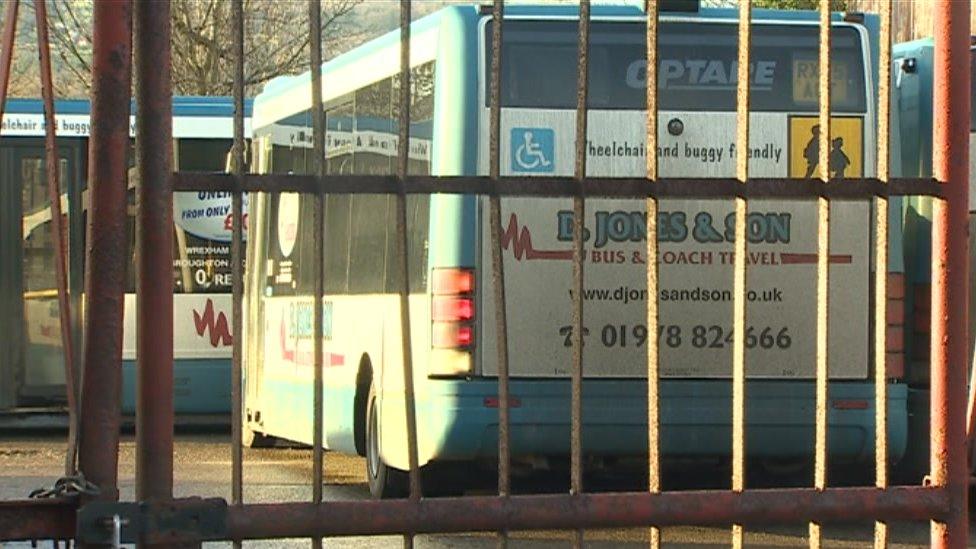
- Published4 September 2017
